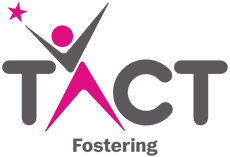Martin Clarke, TACT Director of Performance Support
I worked as a frontline Social Worker in Child Protection for 26 years and it was not until 2009 that I heard of Foetal Alcohol Spectrum Disorder (FASD), and even then, if I had not had a personal interest in the topic, I doubt it would have made a major change to my practice.
I was committed to seeing behaviour through an “attachment prism”, and looking at the impact of trauma on the child. I was focused on parents – whether their care was by normal standards “not good enough”, and trying to help them improve their parenting believing that this was at the heart of the issue. I never thought about whether or not alcohol, consumed by the birth mother during pregnancy might be playing a part. And, as far as I can recall, no other professional, be it teacher, police officer, CAMHS (Child and Adolescent Mental Health Services) worker, senior manager, nursery worker or whoever, considered it either.
Looking back, armed with what I now know, I would conservatively estimate that 80% of families I was party to ‘splitting up’ as a result of a Case Conference, or Court decision, could have stayed together had we explored at the outset whether foetal alcohol might be playing a part.
Do I think we are better now? Not really. I no longer sit in case conferences or work directly with families, but my experience of delivering FASDs training to professionals suggest there continues to be widespread ignorance of this condition.
Recent research (McQuire, 2018) has suggested that the prevalence of FASDs is actually far greater than we had previously estimated. Her research (based on a cohort of 13,500 children born in 1991/92) would suggest that at least 6% of the whole population may be FASDs affected, but that it could even be as high as 17%, nearly a fifth, of the whole population. An amazing statistic for a condition that is so little recognised.
We also know that the rates for children in the care system are, not surprisingly, going to be far greater than for the general population, as many of them come from households that have domestic violence, substance misuse and other alcohol related issues present.
Everyone working with children and families should be aware of FASDs so that we can consider it at the earliest possible opportunity when making assessments. In this way we can ensure that we provide the right strategies and do not embark on alternative treatment routes which may be costly, time-consuming, false expectation raising or even potentially harmful.
Many people who are aware of the condition are really only aware of Foetal Alcohol Syndrome (FAS), a condition that has visible feature, yet this affects only 10% of the children on the spectrum. The remaining 90% will have no visible features, will look, to use a word, “normal”, yet they may have neurological damage that will affect their emotional and behavioural presentation and, if we are not aware of FASDs, we will view them as “naughty children”, or as the products of “poor parenting” or will seek to explain their issues through either trauma or attachment histories.
Until and unless we understand FASDs we will continue to remove children from families, we will continue to place children inappropriately in foster care or residential care, and we will continue to waste money, time – and hope – on treatment regimes.
So what do we need to do? There are several strands to this simple question, but the key word is “education”. We need to:-
- Educate everyone about the dangers of drinking whilst pregnant;
- Educate in particular anyone contemplating having a baby about the additional risks posed by alcohol consumption
- Educate all professionals about the impact of alcohol, this includes, but is not limited to:
- Social Workers… include it on University courses
- Teachers… put it in teacher training programmes?
- Midwives and Health Visitors..
- Police officers
- Youth Offending teams
- Mental Health services
- Judges
- Nursery nurses
- Policy makers
- Educate the public so that we remove the blame and stigma that parents face (it’s not their fault……….no-one told them drink could be an issue!)
- Educate the public so that as a society we are more tolerant and understanding of children – and adults – who are affected FASDs.


